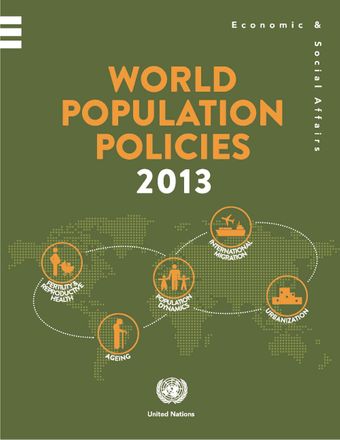- Home
- Books
- World Population Policies 2013
- Chapter
Fertility, reproductive health and family planning

- Author: United Nations
- Main Title: World Population Policies 2013 , pp 59-84
- Publication Date: December 2013
- DOI: https://doi.org/10.18356/5085bf5a-en
- Language: English
The 1994 International Conference on Population and Development (ICPD) broadly defined reproductive health to include all matters relating to the well-being of the reproductive system and its functions and processes. The ICPD Programme of Action envisioned that every sex act should be free of coercion and infection, every pregnancy should be intended, and every delivery and childbirth should be healthy (United Nations, 1995; Tsui, Wasserheit and Haaga, 1997). It emphasized the rights of all couples and individuals to decide freely and responsibly the number, spacing and timing of their children, the right to information and access to safe, effective, affordable and acceptable methods of family planning of their choice, as well as the right of access to appropriate health-care services that ensured safe and healthy pregnancy and childbirth. The Programme of Action considered human rights, gender equality, empowerment of women and elimination of all forms of violence against women among the key principles in promoting reproductive health (United Nations, 1995).
© United Nations
ISBN (PDF):
9789210564267
Book DOI:
https://doi.org/10.18356/22e83351-en
Related Subject(s):
Population and Demography
Sustainable Development Goals:
-
From This Site
/content/books/9789210564267s009-c003dcterms_title,dcterms_subject,pub_keyword-contentType:Journal -contentType:Contributor -contentType:Concept -contentType:Institution105
/content/books/9789210564267s009-c003
dcterms_title,dcterms_subject,pub_keyword
-contentType:Journal -contentType:Contributor -contentType:Concept -contentType:Institution
10
5



